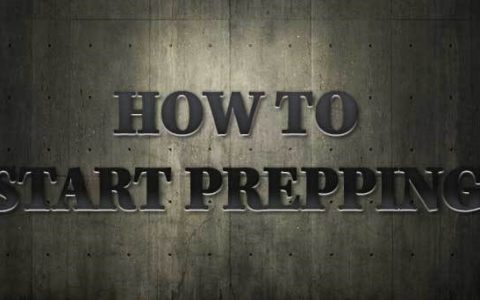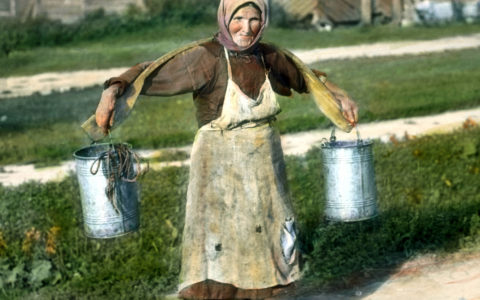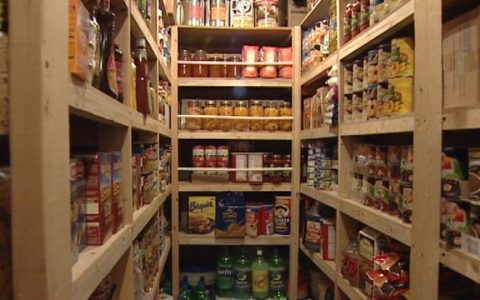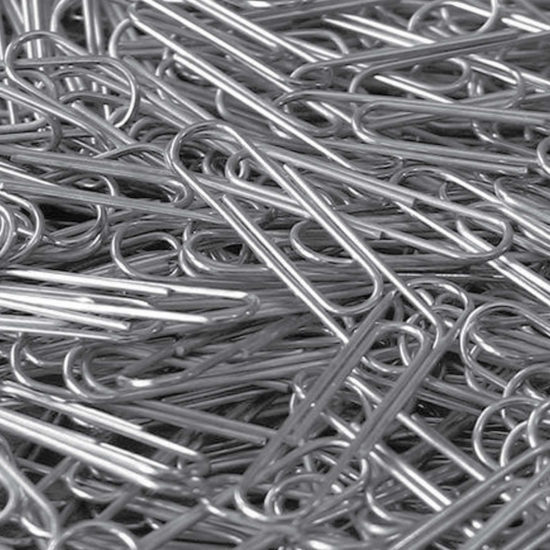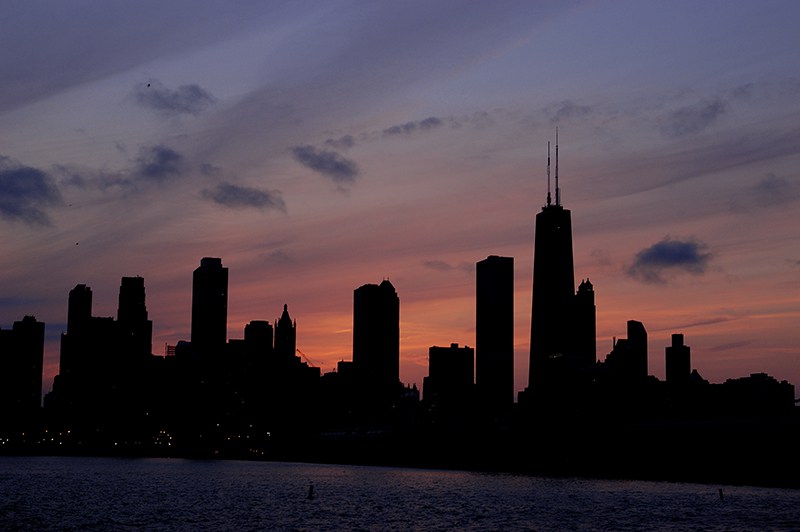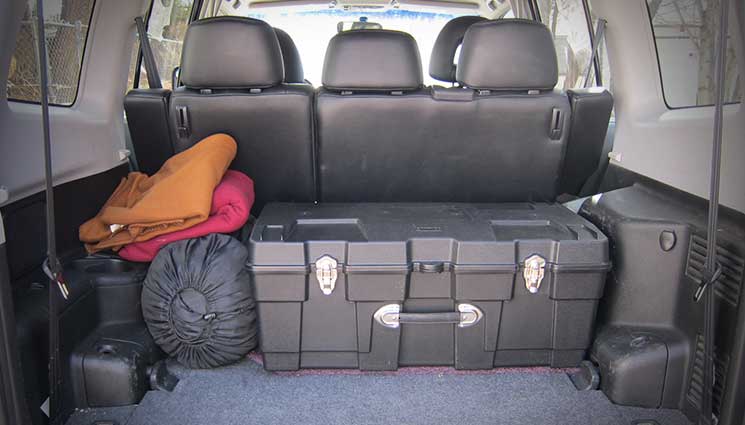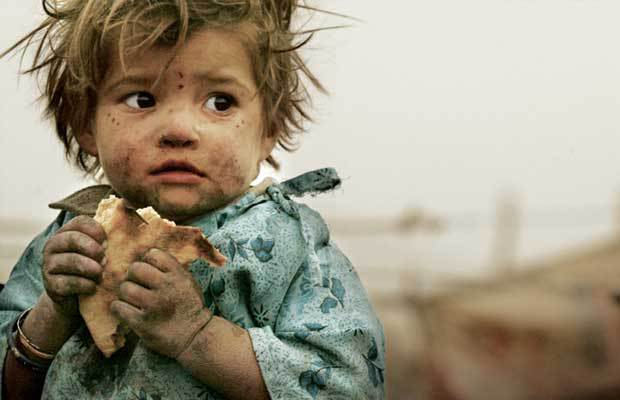
One of the central pillars of preparedness is being able to feed yourself. Preppers focus some of their attention on stockpiling food as well as creating renewable sources like gardens or livestock (chickens and rabbits) as protection against the possibility that the local grocery store is no longer able to provide something to eat. The average person it has been said only has about 3 days’ worth of food in their homes and if that is true, feeding your family in certain disasters could prove to be possibly your biggest problem.
We have already seen time and time again, scenes of grocery store shelves stripped clean anytime there is a concern in the public. Greece was just the most recent example of this behavior preppers warn against. Starvation would surely be a horrible way to die and it seems as though collectively we all consider this a threat that must be dealt with to ensure the safety of our loved ones. The question is how you will deal with the risk of not being able to feed your family. Will you stock up on food now while you are able, or will you try to swim through the crowd of potentially thousands of other people raiding the local grocery store in the hopes that you can secure enough food to last your family through whatever disaster you are facing?
For many preppers, this may not be as grave of a concern from your perspective. If you have been diligently preparing, you may already have quite a large supply of food that would conceivably last you and anyone else in your home a long time. You might have plenty of food stocked already so you plan to sit back in the safety of your home while everyone else goes crazy; fighting over the last can of olives. But as you are sitting back feeling confidently comfortable, gazing at your full pantry, those 5-gallon buckets of Winter Wheat and metric tons of beans, have you ever considered how long that food will actually last you when you start needing to eat it?
Determining how long your food storage will last
The default amount of calories we consider to be recommended for an adult is approximately 2,000 calories per person. I know there are differences in age, activity level, and gender, but for simplicity’s, sake let’s just take that amount as our baseline. For general health, each member of your survival group will need to consume on average 2,000 calories per day to simply maintain a “healthy” weight.
Rice and beans are a great long-term stable food supply for preppers. They have an impressive storage life as long as they are kept cool and dry and they are very cost-effective as well. You can purchase a 50-pound bag of rice for around $20. Rice and Beans together give you carbohydrates and protein. Each 50-pound bag of rice has approximately 500 servings and there really isn’t anything like the satisfaction you can get from staring at a shelf full of rice and beans. But how long will that last your family?
A 50-pound bag of rice has about 500 servings.
Each serving (1 cup) of rice is 206 calories
Each serving of pinto beans has 245 calories
If you ate three meals of Rice and Beans in a day you would consume only 1353 calories. (451 X 3). If you had a family of 4, that 50 pound bag would last you about 41 days but that isn’t all the calories you would need. To just stay healthy and not lose any weight you would need to come up with another 700 calories per person, per day.
Calories are more important to measure than servings
Well, you could supplement that rice and beans with the wild game you plan on hunting, right? Did you know, a 0.5-1 pound roast venison tenderloin has a whopping 127 calories? That doesn’t get you much further toward your calorie targets, does it? What about chicken? One grilled chicken breast has only 141 calories.
Now let’s make the assumption that life without grocery stores is going to require more work out of you. Possibly much more work. So, the 2,000 calories per day amount aren’t likely to be a realistic count of the number of calories you will actually need. You might be digging latrines to deal with sanitation, hunting for food, or foraging in the forest all day. You could be patrolling your neighborhood or lugging water from a mile away. You would be washing clothes by hand, chopping wood; building fires and the 2,000 calorie amount would likely be more like 3,000 or 4,000 for some people just to maintain their weight. How long will your food last now?
To really get a good idea of how much food you have, you need to look at how many calories that food you plan on eating is going to give you. You can’t simply look at serving amounts and call it done because a serving of a fruit roll-up might make you think you will get a meal out of it, but they won’t come anywhere near close to what you need.
In addition to food make sure you plan on a good source of vitamins to augment austere eating conditions. This won’t be as good as the real thing but could help stave off some health effects of a less than ideal diet. You should take the time to conduct at least a cursory inventory of your food stockpiles, check the serving size and calorie amounts. You can get really detailed and put this into a food storage spreadsheet if you like, but that will give you a true picture of the amount of time your food will last the number of people you have. Instead of looking at this from a poundage viewpoint, you consider calorie counts. That way it will be easier to forecast how long your food will last and adjust for different people in your care.
What happens when we start to starve?
The more food you have, the better off you will be in a collapse scenario where we have no hope of the lights coming back on. Gardens and livestock greatly add to this cumulative total you have, but unless you have a very productive garden or a large supply of animals, the food you have on hand is likely to start running out. At some point in time, if the supply of food is interrupted, rationing might be a consideration you need to make.
Another consideration is the needs of the various people in your group. You may find you have hard choices to make. Someone who is old for example, who is less active may not get the same share of food as a younger person who is working outside all day. You may have to choose between roles and which people in which roles are given extra allotments of food. What if someone is out digging graves all day? Do you believe that someone who is sitting inside or not working as hard should get the same ration of food or the same dispensation of calories? If so, how long before the person who is working physically harder starts to decline in health? How long could you shovel or defend your home in a starvation state?
We talk about food storage as a solution to the grocery stores closing, but that will only buy us time in a true collapse. Yes, it will help your family tremendously to have additional food stocked up, but it will run out if the crisis lasts long enough. When calories are seriously limited, health starts to decline.
When we don’t get enough calories for a long enough time, our organs begin to shrink and gradually start to lose function. We can have bouts of chronic diarrhea, anemia, reduction in muscle mass, and the weakness that goes with that.
We have all seen images of refugees on TV. Poor children covered in flies with distended bellies staring blankly at the camera might elicit a sense of guilt in us today as we sit on the sofa and flip through the channels. In Haiti, there are areas where people make and sell mud pies for people to eat because there is no other food and the worms in their stomachs would rob the person of any nutritional value from real food before it could help them.
What will you do when these poor souls are your children?
Kwashiorkor and Marasmus
Kwashiorkor and Marasmus are two conditions that are seen with acute malnutrition. It causes the swollen bellies you see on TV and I can see this appearing in our country where we to go through some horrible SHTF event. The pictures you see on TV could be not from around the world, but in your own backyard.
As in other places in the world, this will lead to violence and death as everyone fights for food resources to fend off dying.
“Kwashiorkor is the most common and widespread nutritional disorder in developing countries. It is a form of malnutrition caused by not getting enough protein in your diet. Foods that contain protein include meat, milk, cheese, fish, eggs, soy, beans, nuts, seeds, and some types of grains like quinoa.”
Children who are deprived of calories for long enough will never reach their full potential for height and growth. These two conditions are treated in the beginning by simply getting more food with a healthy balance of protein. In more severe cases, you can’t just give a starving person a cheeseburger. You will have to introduce food slowly and something like powdered milk is good (reconstituted of course) to start them out until strength has increased and more food can be slowly added to their diet.
Anyone who has children will tell you that they will do anything to take care of their family. This manifests itself in a lot of imaginative ways, some violent. Before you have to get to that place where you are thinking of doing whatever is necessary to feed your family, make plans now to have as much food security as possible. A good strategy of food storage to include foods you eat every day, long-term store-able food, and renewable sources will put you in a better position to provide for your family. Think about this now so you have to worry about this less when it actually is an issue.
What are your food storage plans and how long will your food hold out?
Other self-sufficiency and preparedness solutions recommended for you:
The vital self-sufficiency lessons our great grand-fathers left us
Knowledge to survive any medical crisis situation
Liberal’s hidden agenda: more than just your guns
Build yourself the only unlimited water source you’ll ever need
4 Important Forgotten Skills used by our Ancestors that can help you in any crisis
Secure your privacy in just 10 simple steps











